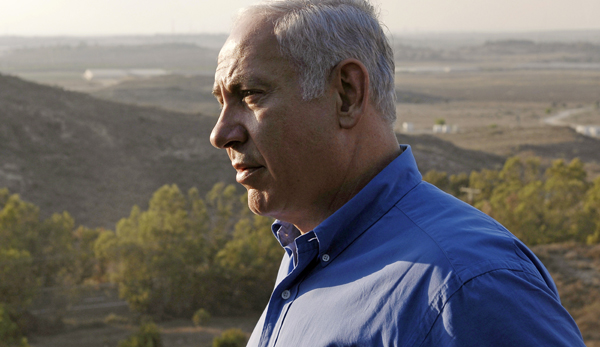Politics
Analysis: Is Middle East peace an oxymoron or is there some hope at last?

In spite of some really good efforts, the American-sponsored direct negotiations between the Israelis and Palestinians are not dead. Yet. By J BROOKS SPECTOR.
American humorist PJ O’Rourke just about nailed it when he named the land between the Mediterranean Sea and the Jordan River “God’s monkey house”. O’Rourke was calling attention to the phenomenon one encounters entering the primate house in a zoo. First the howler monkeys start their hooting, then the next species, and the next and the next, until one gets to the big guys, the orang-utans and chimpanzees with their cries, and, then, finally, on to the gorillas roaring full-blast and beating their chests. Eventually you’ve got the full aural spectrum from the deepest subsonic rumbles to high-pitched squeaks from those tiny marmosets. The Middle East is something like that – once anything happens, everyone eventually gets in on the act.
After visiting the region for a couple of weeks, a few years back, I also had one of those epiphanies about Israel and Palestine. I was standing on a hill in the West Bank and, just by turning my head a bit, I could see the ruins of an ancient fortress (was it Roman? Byzantine? Crusader? Saladin’s forces? Ottoman? British?), an Arab village, one of the officially-sanctioned Jewish West Bank settlements – as well as one of those “informal” settlements built outside the official Israeli system. And all of this was just a few minutes’ drive beyond Jerusalem’s suburbs. Maybe the whole situation is one where there are just too many people with too many itches they will never be able to quite satisfactorily scratch.

Photo: Israel’s Prime Minister Benjamin Netanyahu stands on a hill overlooking the Gaza Strip during a visit to the southern town of Sderot September 21, 2010. REUTERS/David Buimovitch
For decades, in each American president’s administration, after a few years of hoping the various parties to the conflict would get on with the job by themselves, American presidents have eventually felt compelled to carry out the geopolitical equivalent of squaring the circle, trying to achieve that most elusive of things – a comprehensive Mideast peace accord. Most times, they’ve been rewarded with a photograph at the White House and maybe a Nobel Peace Prize, but then things don’t quite work out as planned and the whole cycle starts anew, four years later. And that puts us back in the walk-through the Monkey House at the Zoo, all over again.
Now it seems that it is Barack Obama’s time for a presidential investment in Mideast negotiations futures. As the US domestic political scene becomes tougher and tougher to affect, like so many presidents before him, he has limbered up to chase that mechanical rabbit at the greyhound racetrack, which will never be caught. A whole new cycle of irritation with the rivals begins. There is enthusiasm as negotiations start, exhilaration as movement seems to happen and then exhaustion over the lack of closure. Or just possibly, perhaps not, this time around – and that’s the really interesting part of the current negotiations – if they survive the week.
For one thing, the Palestinians must surely realise Barack Obama is the most favourably disposed American president towards their cause to inhabit the White House since, well, since the beginning of time. On the other hand, pointing the wrong way is the fact there really isn’t a single Palestinian position. The Fatah-led Palestinian Authority in the West Bank has one set of views; Hamas (or the various versions of it) in Gaza and elsewhere in the Palestinian diaspora have different views , lots of them. And young kids in East Jerusalem and Ramallah neighbourhoods probably have yet others.
But, the larger generic Palestinian cause and a two-state future is now fully accepted by American officialdom – they’re speaking about a two-state solution as something for the real world that is a goal for the first direct negotiations between the sides in almost two years’ time.

Photo: Hamas leader Khaled Meshaal (R) chats with Fatah official Azzam al-Ahmad after their meeting with members from the Arab Transitional Parliament in Damascus September 27, 2010. REUTERS/
As Barack Obama himself argued at the UN General Assembly just last week: “Last year, I pledged my best efforts to support the goal of two states, Israel and Palestine, living side by side in peace and security, as part of a comprehensive peace between Israel and all of its neighbours. We have travelled a winding road over the last 12 months, with few peaks and many valleys. But this month, I am pleased that we have pursued direct negotiations between Israelis and Palestinians in Washington, Sharm el-Sheikh and Jerusalem.”
He went on to acknowledge a sense of pessimism where, “…Cynics say that Israelis and Palestinians are too distrustful of each other, and too divided internally, to forge lasting peace. Rejectionists on both sides will try to disrupt the process, with bitter words and with bombs. Some say that the gaps between the parties are too big; the potential for talks to break down is too great; and that after decades of failure, peace is simply not possible.”
But he staked out his administration’s view that, “If an agreement is not reached, Palestinians will never know the pride and dignity that comes with their own state. Israelis will never know the certainty and security that comes with sovereign and stable neighbours who are committed to co-existence. The hard realities of demography will take hold. More blood will be shed….
“We all have a choice to make. And each of us must choose the path of peace…. Earlier this month, at the White House, I was struck by the words of both the Israeli and Palestinian leaders. Prime Minister Netanyahu said, ‘I came here today to find an historic compromise that will enable both people to live in peace, security, and dignity.’ President Abbas said, ‘We will spare no effort and we will work diligently and tirelessly to ensure these negotiations achieve their cause’.
“Those of us who are friends of Israel must understand that true security for the Jewish state requires an independent Palestine – one that allows the Palestinian people to live with dignity and opportunity. And those of us who are friends of the Palestinians must understand that the rights of the Palestinian people will be won only through peaceful means – including genuine reconciliation with a secure Israel.”
Given such perspectives, the Israelis almost certainly recognise, at least in their inner governmental councils, that beyond the demographic facts on the ground running against them, they have also lost any sort of automatic international moral high ground for their position. This week, for example, the latest relief ship leaving Cyprus, bound for Gaza, is crewed by Jewish activists, carrying things like artificial limbs and vaccines. Somehow, in some way, the Israelis’ own calculations must be showing they will eventually acquiesce in the creation of a Palestinian state and that they will end up negotiating some form of new status for East Jerusalem different from the one they first envisioned after their 1967 military victory.

Photo: Construction vehicles prepare the ground as building of a housing project resumes in the West Bank Jewish settlement of Ariel September 27, 2010. Israel let a moratorium on new building in settlements expire on Monday but Palestinians held back from carrying out a threat to quit peace talks, giving the United States more time to try to save the negotiations. REUTERS/Nir Elias
Of course, the latest stumbling block to a negotiated settlement is the conclusion of the 10-month hiatus in new Israeli housing construction in the West Bank. But even though construction is no longer subject to a government red light, Israel’s hard-line Prime Minister Benjamin Netanyahu, has urged settlers to exercise caution and common sense. Netanyahu is not above using the threat of new housing construction as a lever to extract concessions from his opponents – or the Americans, for that matter. But, while the Palestinian Authority’s Mahmoud Abbas did not use the end of the construction ban as the pretext for an immediate end of the negotiations, Khaled Meshaal, the exiled head of Hamas, called on Abbas to quit the peace talks. Speaking from Syria, Meshaal called on the “Palestinian Authority, who had stated they would not pursue talks with the enemy if it continued settlement construction, to hold to their promise.”
Abbas, however, has decided to test the waters with other Arab leaders in Cairo first (as well as with his local constituencies) before making a decision, even though he had earlier warned talks would be a “waste of time” unless the construction ban was extended.
But there is also the small – or maybe not so small – matter of the Jewish holiday of Sukkoth. This holiday will actually slow down any real resumption of construction as Sukkoth is the week when religiously observant Jews choose to eat and, sometimes, even sleep in a temporary dwelling rather than their regular home. In the West Bank on Monday, however, bulldozers did begin work on foundations for a new 50-unit neighbourhood. If work is not slowed, construction may eventually start on 2,000 officially approved units.
Israeli commentators say Netanyahu believes he is restricted by the views of his right-leaning coalition government that opposes bans on construction in the West Bank territories Israel has occupied since 1967.
And so here is where US strong-arming to keep some wiggle room may yet happen. There is at least the possibility American pressure may push Palestinian negotiators to accept that the building moratorium will not officially get extended, just so long as Israelis do not carry out any major construction in the coming weeks and months. And that could keep negotiations moving forward – just as long as rockets fired from Gaza into Israel don’t start killing Israelis or just as long as Israelis don’t engage in punitive raids into Gaza or violently board yet another relief ship.
Since Israel has occupied the West Bank, about half a million Israelis in 149 officially approved settlements and a 100 informal outposts are now living in the West Bank, while around two-and- a-half million Palestinians live in the West Bank as well. International law generally has held all the Israeli West Bank settlements to be illegal occupations. Of course, other even more contentious issues like the safety and security of inhabitants, the rights and fates of Palestinian refugees (or their descendents) who left Palestine in 1948 during the Israeli independence war, and the final borders and status of Jerusalem still await the negotiators if they can get beyond this housing construction crisis. Pray. DM
For more, read BBC, BBC, AP, AP, The New York Times, The New York Times, The New York Times, The New York Times, The New York Times, Time, VOA, The Washington Post, The Economist, The Economist and the US Embassy site for Obama’s full speech text.
Main photo: Jewish settlers stand around a cement mixer during a foundation laying ceremony in a show of support for settlement construction, in the West Bank settlement of Kiryat Netafim south of Nablus September 26, 2010. Prime Minister Benjamin Netanyahu urged Israeli settlers to act with restraint after a limited construction moratorium expires on Sunday, a plea that appeared aimed at keeping Middle East peace talks alive. REUTERS/Nir Elias





 Become an Insider
Become an Insider